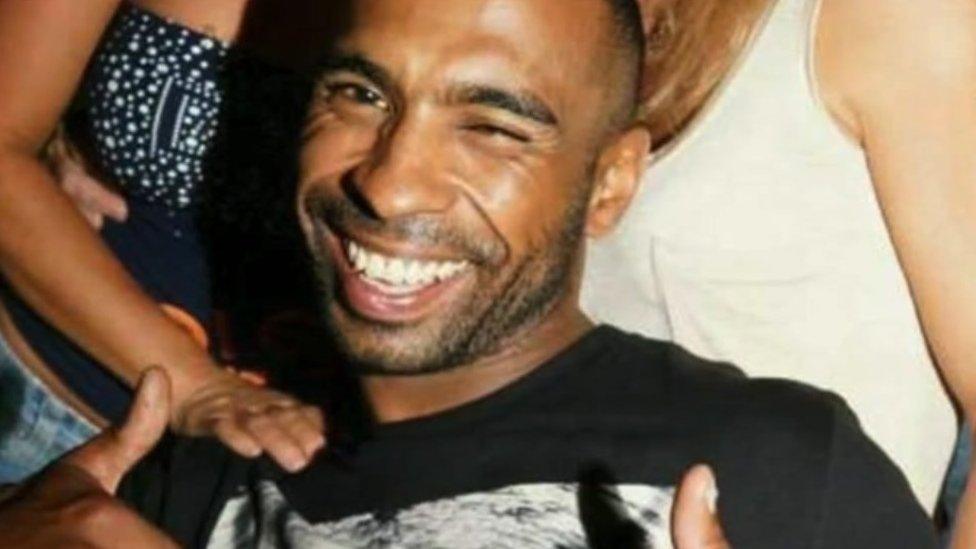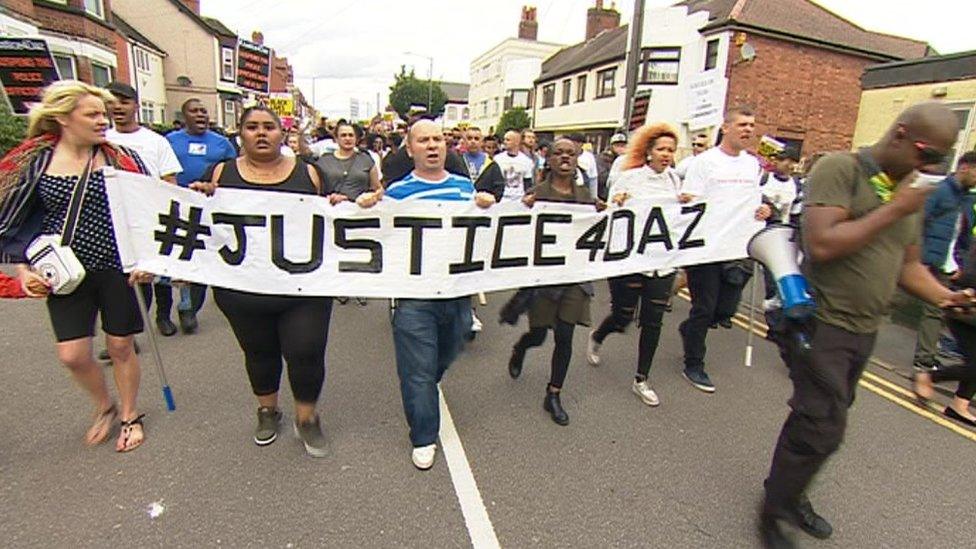Darren Cumberbatch inquest: Police restraint contributed to death
- Published

Darren Cumberbatch died in hospital from multi-organ failure
Police restraint, including the use of Tasers and batons, contributed to the death of a man nine days later, an inquest has found.
A coroner said the level of restraint used by Warwickshire Police on Darren Cumberbatch, was "excessive" and "probably avoidable".
Mr Cumberbatch died of multiple organ failure in hospital in July 2017.
The inquest heard he was also punched 15 times and sprayed with an incapacity substance when he resisted arrest.
Darren Cumberbatch inquest: Police restraint contributed to death
Warwickshire Police said it had noted the jury's verdict that it could have done more to de-escalate the situation and that some of the restraint used may have been excessive.
Officers were called to McIntyre House in Nuneaton in the early hours of July 10 after Mr Cumberbatch, 32, was reported to be behaving "irrationally" in a toilet block.
The electrician, who had taken cocaine, was "exerting himself physically" and presenting symptoms consistent with acute behavioural disorder, assistant coroner for Warwickshire Delroy Henry said.

Carla Cumberbatch said she hoped her brother's death would result in "fewer fatalities"
The inquest heard Mr Cumberbatch was Tasered, punched 15 times, struck with batons and sprayed with an incapacity substance when he resisted arrest.
The restraint continued after Mr Cumberbatch was taken to nearby George Eliot Hospital, where he was said to be "lashing out and in a state of agitation," the inquest was told.
Recording a narrative verdict, Mr Henry described the lack of planning and communication between officers before entering the bail hostel toilet block as a "serious failure".
The jury at Warwickshire Justice Centre also found that Mr Cumberbatch's death was drug related.
Speaking outside court, Carla Cumberbatch said she hoped her brother's death would bring about progress.
"Hopefully something good can come out of Darren's death and this will raise of awareness of needs of police officers to keep restraint to a minimum," she said.
The Independent Office of Police Conduct, which is carrying out an investigation in to the death, said it would now consider the next steps in relation to publishing its findings.
The Warwickshire Police spokesperson added: "We recognise the importance of now taking the appropriate time to carefully consider the inquest outcome and to ensure our officers are prepared to manage all the risks they face in the course of protecting the public."

Follow BBC West Midlands on Facebook, external, on Twitter, external, and sign up for local news updates direct to your phone, external
- Published7 June 2019

- Published28 May 2019

- Published29 July 2017
